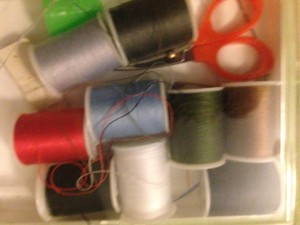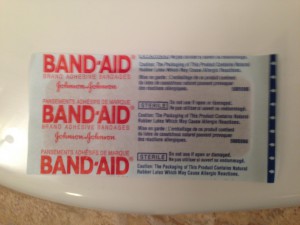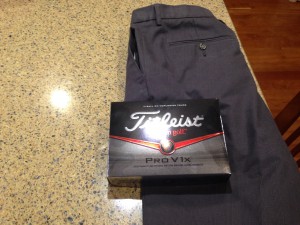Roadies is a 10 episode show that debuted on Showtime this summer. I was late to the game, and binge-watched the show during the last couple of weeks whenever I could fit in an episode. It’s on Hulu, Amazon, and of course Showtime. The ratings were unfortunately not great (some nights up against the Olympics—not sure who thought that was a good idea…) and the show may not get renewed. Main stars; Luke Wilson and Carla Gugino. They’re fine actors, but I watched for one reason: Cameron Crowe.
Cameron Crowe
Cameron Crowe created this show. He wrote or co-wrote most of the episodes and directed some of them as well. What else has he done? He wrote Fast Times at Ridgemont High, Say Anything, Jerry Maguire, Singles and my personal favorite; Almost Famous. The fact that Roadies didn’t necessarily connect with audiences doesn’t mean it isn’t high quality work. Almost Famous actually lost money, but stands as one of the great rock movies. It’s held up very well.
He’s done other work, and not all of it connected. Some of it downright flopped. Aloha and Vanilla Sky are two examples of recent Cameron Crowe disappointments, both critically and commercially. His stuff honestly doesn’t always work. But it’s almost never for lack of ambition. He tries for emotional payoffs in almost every piece of work. “You had me at hello.” “You complete me.” Pretty memorable stuff.
But rock music, at the center of Roadies, is where Crowe grew up. He was working at a very young age for Rolling Stone and much of Almost Famous is at least partially autobiographical. He was on the road with the Allman Brothers when he was 16, while most kids (myself included) were lucky to be mowing lawns or working at McDonalds for money.
So when he decides to write about the inside of rock music or touring, he has not only a keen eye for what’s interesting and moving, but he’s heard the stories from some of the all-time legends of rock that feature incredible inside knowledge. In many cases, there’s just nobody else on the planet who has that combination that can document that era in music to share.
The Music
I’ve read some other reviews of this show, and I’ve seen minimal mention of the music. If there is a better soundtrack for a television show, I don’t think I’ve seen/heard it. I have no idea how they could afford the rights to all these songs (although Crowe’s music industry connections may have gotten some cheaper deals). I haven’t followed music in the last few years as much as I did when I was younger, but since watching the show, I’m picking up some Phantogram, Halsey, Lucius and Gary Clark Jr.. I guarantee you’ll discover some music on this show you haven’t heard before. It’s not all new–classic hits are sprinkled throughout; the Who, Lindsey Buckingham, Jackson Browne, Eddie Vedder all have prominent musical parts to play.
Episode 8, “The All-Night Bus Ride”
I’ll admit, although I’m a big music fan, I never dove into the legend of Lynyrd Skynyrd. I know that I’m supposed to yell out “Free Bird” at any rock concert when there is a lull (although I’m still not sure why I’m supposed to yell that…), but other than that, I didn’t appreciate much of their work/legend beyond the obvious melodic instincts of Ronnie Van Zant. You might not like the political message in “Sweet Home Alabama,” but it’s hard to knock the melody. Kid Rock even married it liberally with “Werewolves of London” to make the biggest hit of his career, “All Summer Long.”
But this episode makes me want to dive into the Skynyrd catalog. It is gripping television, with frequent flashbacks that really build into a spellbinding re-telling of Skynyrd’s opening for the Rolling Stones. Nobody besides Cameron Crowe could have made this story come to life. If this show doesn’t get renewed and it only lasted for one season, it still has this triumphant episode. The vast majority of television shows, even ones that have decent ratings, never hit the kind of notes that you see in this episode. This episode alone would make a strong short film.
Could you skip everything else and watch just this? I suppose. But the build-up really is key for much of the story. I think it’s much more satisfying to watch the series in order.
Struggles, but it Ain’t the End of the World
In the last decade, the majority of great television shows have featured serious darkness. The first season of True Detective (which I can’t recommend enough … in Matthew McConaughey’s impressive and Oscar-winning career, I think this is by far his best work), Game of Thrones, Breaking Bad, Mad Men … or even going back to The Wire or Sopranos, serious evil and dark themes abound.
Roadies is not dark. And it’s not in the same league as those other shows. It just isn’t. There are problems—there has to be conflict or there’s no story. But there isn’t a murder (or more) every week. People are just trying to find their way. Social commentary abounds. This is a modern show that attacks the power of quasi-informed bloggers (hey—I’m writing a blog right now … wait a second!).
This show could have probably just as easily have been about sailors or people on a spaceship going from port to port. They visit places briefly, where everyone else is cemented in their lives, but our heroes … sailors, space-explorers or in this case roadies … have to find whatever lasting permanence they can in the constant motion of their lives, and with each other.
Sometimes it’s nice to watch a show that doesn’t insult your intelligence yet doesn’t need to go all apocalyptic.
Speeches
Other reviews I’ve read about Roadies complained that characters simply spout speeches. They don’t necessarily engage with each other, they just rant when the other person is done talking. I’ll concede this point, but sometimes these speeches really work. Here’s a quote, given by Reg., the sort-of-bad-guy-or-is-he? “The key isn’t the pencil. It’s the eraser. The key to life is the second chance.”
Okay, so that was part of a speech said by one character after another gave a speech. But … that’s a pretty amazing line. I’ll sit through some speechifying if I get nuggets like that.
Humor
This isn’t pratfalls. This isn’t even the Big Bang Theory (sort of the nerded up version of sitcom verbal pratfalls). But there is plenty to laugh at throughout the series. Witty, smart dialogue that doesn’t pander is refreshing and shouldn’t be unexpected, but in today’s television offerings, it is.



